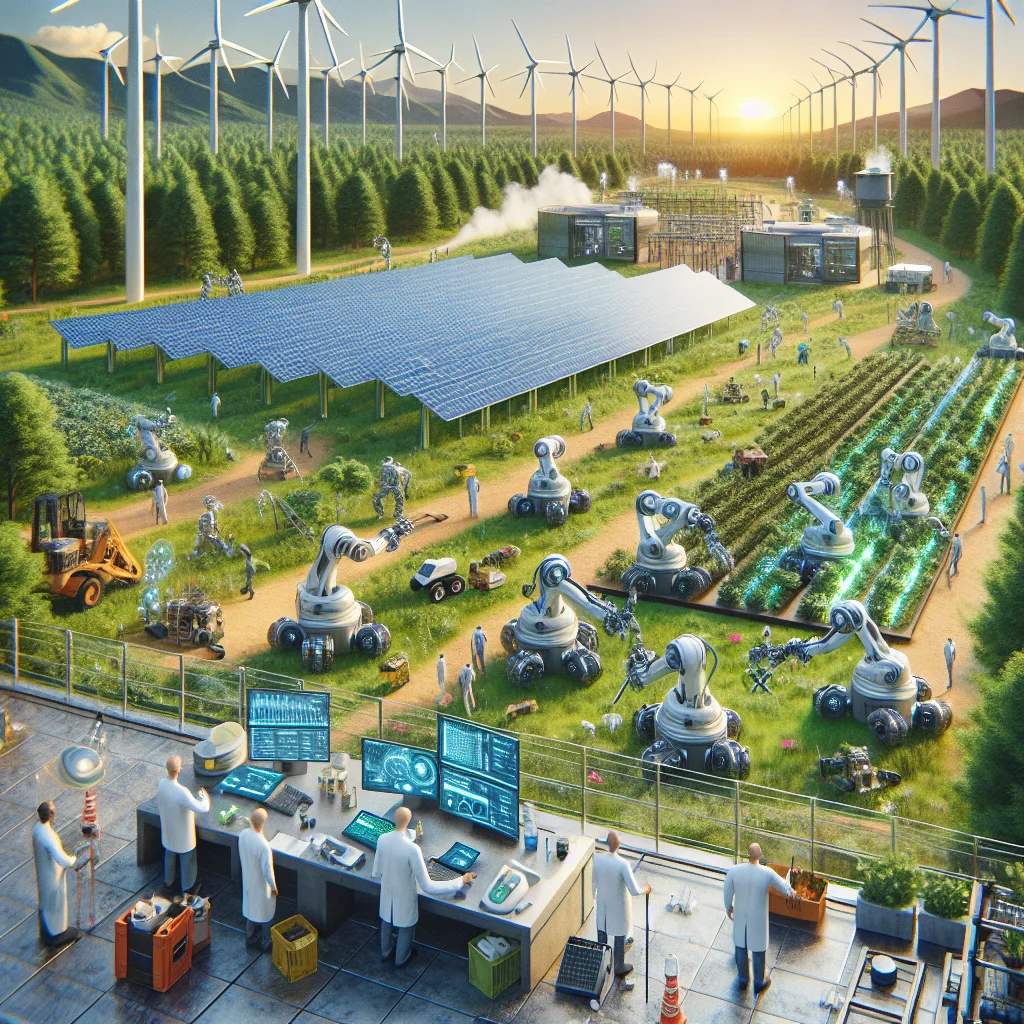How AI is Advancing Sustainability Efforts in 2025
April 09, 2025

Artificial Intelligence (AI) is not just changing the way we work and interact; it’s also playing a pivotal role in making our world more sustainable. In 2025, advancements in AI technology are significantly contributing to various sustainability efforts, from energy efficiency to waste management. Understanding how these technologies are harnessed for environmental benefits is crucial for professionals, enthusiasts, and casual readers alike.
What Are the Latest Trends in AI for Sustainability?
As we move deeper into 2025, several key trends are emerging in AI development focused on sustainability. Machine learning algorithms are now more adept at analyzing vast amounts of data to predict environmental impacts and optimize resource use. For example, predictive analytics powered by AI can enhance how companies manage energy consumption or reduce carbon footprints.
AI Applications Transforming Industries
AI is being employed across various sectors to advance sustainability. In agriculture, precision farming utilizes AI to analyze weather patterns, soil conditions, and crop health. By predicting yields and resource needs more accurately, farmers can significantly reduce waste and improve food security. Similarly, in transportation, AI-driven systems optimize routes for delivery trucks, lowering fuel consumption and emissions.
In the energy sector, companies are leveraging AI for smart grid technologies. These systems improve the efficiency of energy distribution and consumption, making renewable energies like solar and wind more viable and efficient. By monitoring energy flow in real-time, AI helps utilities predict demand and manage resources more effectively.
Insights from Industry Experts
Renowned AI thought leaders are increasingly recognizing the importance of AI in achieving sustainability goals. According to Dr. Emily Carter, a prominent figure in AI ethics, “The ability of AI to analyze complex datasets means we can implement sustainable practices that weren’t possible before. It’s about leveraging technology responsibly to protect our planet.” Her insights reflect a growing consensus in the tech community on the need for environmentally focused AI developments.
Additionally, interviews with sustainability experts reveal that companies integrating AI are seeing measurable improvements in their sustainability metrics. For instance, firms focusing on Circular Economy practices are using AI to track product life cycles, optimizing recycle processes and reducing waste output.
Real-World Examples of AI-Supported Sustainability
Numerous companies showcase the successful implementation of AI for sustainable practices. For instance, Google has committed to running its data centers on renewable energy and is using AI to enhance energy efficiency across its operations. They reported a reduction in energy consumption by applying machine learning algorithms to manage cooling systems better.
Moreover, IKEA utilizes AI to enhance its supply chain processes. By analyzing data related to inventory and consumer demand, the company minimizes waste and optimizes logistics, thereby promoting eco-friendly practices.
The Future of AI in Sustainability
As we progress through 2025, the role of AI in driving sustainable practices is expected to grow. Emerging technologies, such as AI-enhanced robotics and IoT integration, will continue to reshape how industries approach sustainability. The collaboration between AI and other technologies can lead to breakthroughs that significantly address environmental challenges, pushing the boundaries of what’s possible in sustainable innovation.
Conclusion
In summary, AI is proving to be a powerful ally in attaining sustainability goals across diverse sectors. With emerging trends focusing on data analytics, optimization, and real-world applications, industries are positioned to significantly reduce their environmental impact. As technology continues to evolve, the integration of AI in sustainable practices will be essential to ensuring a healthier planet for future generations.
Back